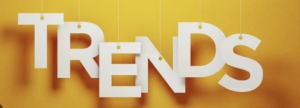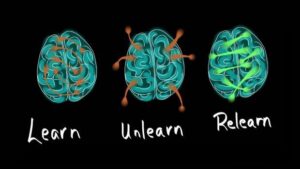-

Panel: The Future of Interpreter Training: Challenges, AI, and the Path Forward
This week, I had the privilege of moderating an interesting panel discussion on interpreter training and its future in the face of rapid technological change (video recording here). I was able to bring together experts from academia and industry, including: Carlo Eugeni, Winnie Heh, Giorgia Martina, and Dieter Runge. Each…
-

System 0 – how technology is changing our minds
It doesn’t happen often, but every now and then, it does. You come across something — an idea, a concept, a phrase — and it hits you like a lightning bolt. Suddenly, everything clicks. It could be a brand-new discovery, the articulation of an intuition you’ve long had, or the…
-

“Will AI replace interpreters” is the wrong question to ask
If it’s true that questions are nearly as important as answers, then our first paradigm shift in grasping the profound changes unfolding in the field of interpreting is to reframe the question itself. Instead of asking, Will AI replace interpreters? we should be asking, Can AI match human performance in…
-

What future for translation and interpreting training institutions?
In this post, I aim to explore the future of translation and interpreting education in academia, particularly the trajectory of translation departments and faculties. In short, my prediction is that translation departments and faculties will gradually lose relevance and, ultimately, at least some of them, sadly, disappear. Translation as a…
-

10 random lessons I learned about AI (and humans)
Lesson 1: “Many tasks that humans solve using intelligence can be solved by machines without requiring human-like intelligence.” In my opinion, one of the most profound insights on AI was articulated years ago by philosopher Luciano Floridi. He asserted, in a strikingly simple way, that while humans may be special…
-

Trends for 2025 in Technology and Interpreting
Predicting trends is never an exact science—it’s more of an art. Yet, I’m eager to take on the challenge. The good news? At the intersection of Interpreting and Technology I don’t anticipate any dramatic upheavals, apocalyptic scenarios, or seismic disruptions in the space. Change, after all, is a gradual process.…
-

The technological turn in interpreting and its short-term implications
The field of interpreting is currently undergoing what I described in 2018 as a “Technological Turn,” a term highlighting the transformative impact of recent technological advancements on the profession. Until that time, interpreting had experienced relatively limited technological influence compared to other language-related fields, such as written translation. However, emerging…
-

Rethinking Machine Translation: Understanding, Reformulating, and Translating
What if, instead of taking the direct route from one language to another, we applied the principles taught in translation schools to machine translation? Rather than translating words verbatim, we were trained to understand the meaning of a sentence, then reformulate that meaning — not the sentence itself — in…
-
Simultaneous Speech Translation: from sentence to context-based approach
Progress is an incremental process—sometimes with big, dramatic leaps, and other times with painstakingly small, almost invisible steps. In speech translation, the ultimate goal is clear: creating a system capable of accurately translating across languages and cultures, capturing not just words but also their intended meaning, while seamlessly adapting to…